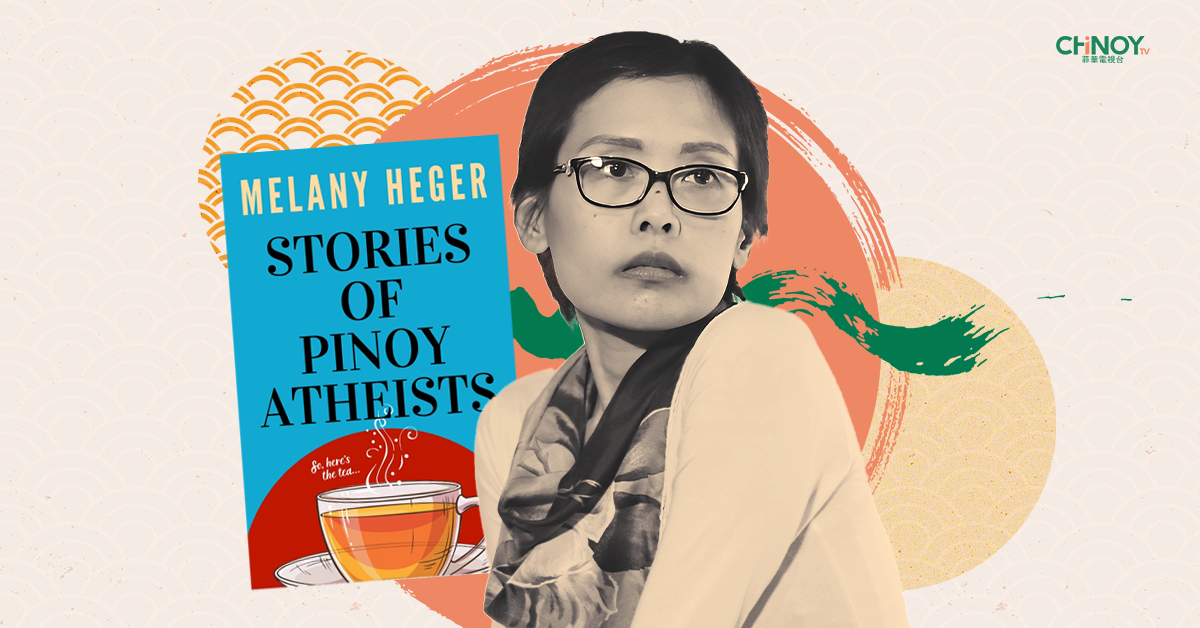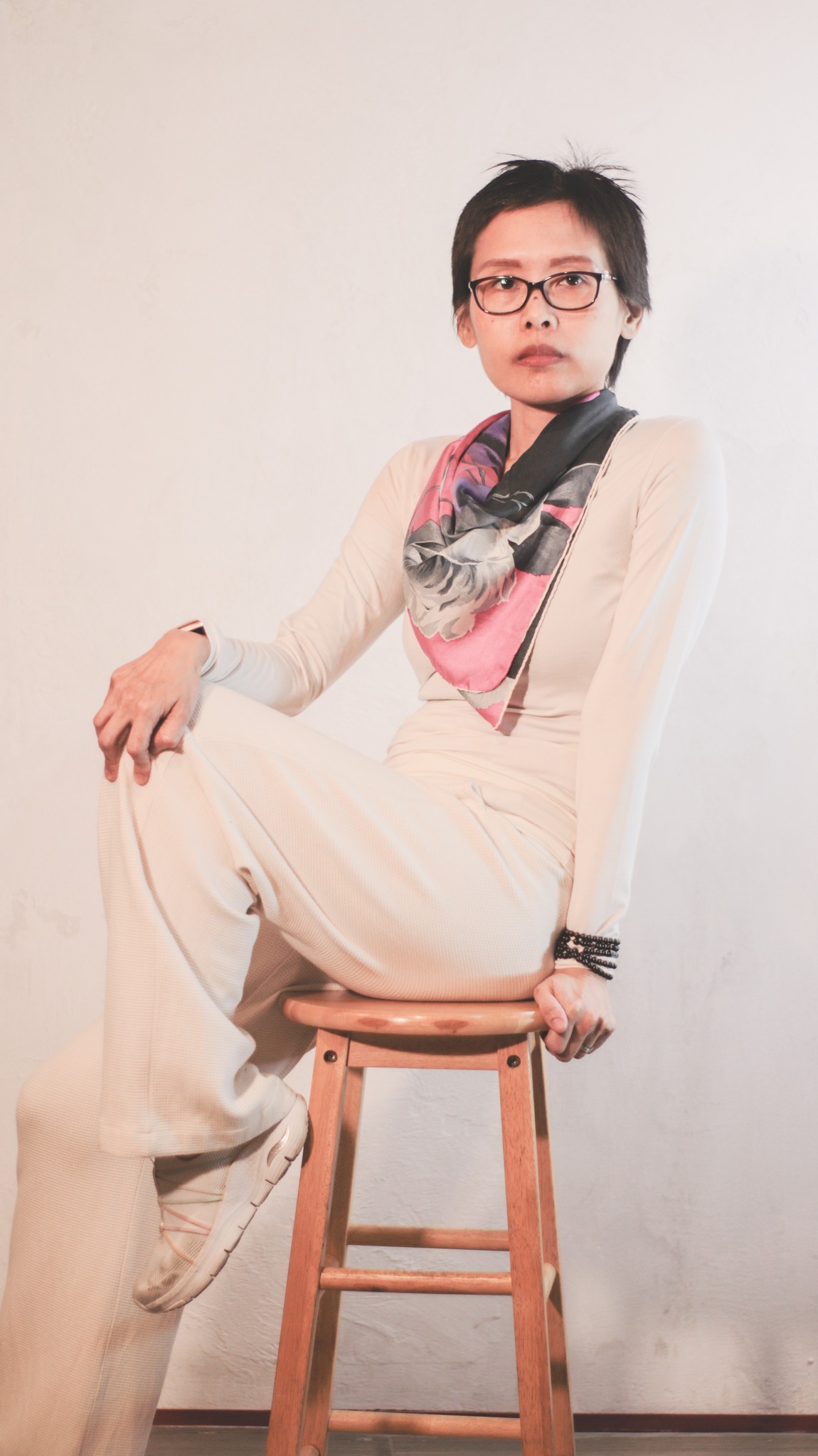Melany Heger on Writing to Speak for Her Truth

Why Words Have Power with Melany Heger
Words are not just a composition of letters for Melany Chua Heger 蔡純恩, the author of Stories of Pinoy Atheists, but for her, words are a source of power to influence, inspire, and ignite change.
As a writer, Heger’s relationship with words started at a young age — reading books as a source of comfort. And later in life, she pursued writing as an act of defiance, a way to go against the “flow” or the norm.
Aligned with this, she grew up with a strong set of values that stayed as she navigated adulthood — for example, becoming an atheist in a religious country like the Philippines.
Her unique background made her braver to pursue what resonated with her the most: being a psychologist who writes to speak her truth. This is also a testament to how words can create impact, both for herself and the people around her. Here’s a quote from the her book.
I started writing this book when I was forty-two. I would not have the guts to do it if I was any younger. Unlike most of my friends here, I prefer to come out in the open and say it: I’m an atheist.
Writing as an Act of Defiance
The way of life in the Chinoy community is to put everything in order: you have to take this certain course, live a “normal” life according to their standards, or perhaps, act a certain way to be accepted. Those who defy the order might experience isolation, as Melany Heger did.
This might have been a painful start for her, but it became a core memory of why she stuck to what she believed in. She shared, “I was introverted and fat and bullied in school when I was nine to ten years old.”
To comfort herself, she found escape in reading — where the world embraced her with no judgment. As a student, she usually stayed in her school library and literally read everything.
“So, being widely read, I imagined being a writer someday. The dream was cemented when an English teacher of mine in high school, Mr. Tapil, read my essay in front of the class,” she continued. With newfound confidence, she continued writing for her school paper in high school and college.
However, pursuing a career in writing was not what her father wanted. She added, “One of my biggest frustrations in life is not getting a degree related to writing. My dad, being the Chinoy pragmatist that he truly is (businessman), told me no. During my time, parents dictating their children’s educational path was normal.”
Hence, she took a more practical degree in college and became a psychologist — a decision influenced by her father’s expectations. But instead of abandoning writing, she later found a way to combine it with her profession, mixing psychology and narrative writing to express what she truly believed in.
Despite the setbacks she still pursued her dream on her own terms, she later took non-fiction creative writing by finishing a course on Coursera (in partnership with Wesleyan University), and also took a few online courses when she became a freelance copywriter.
Her start as a writer was not a smooth-sailing journey, but her hardship gave her a stronger commitment on why writing can be an act of defiance — a way to go against the imposed order in her community.
She proudly said, “My Chinoy background did not nurture my writing skills. However, I was inspired to go against the flow — I wrote as an act of defiance.”
This defiance gave her the strength to write bravely about what she believed in, blending psychology and non-fiction writing.
Melany Heger, a Chinoy author who published ‘Stories of Pinoy Atheists’
Blending Psychology and Non-Fiction Writing
As a psychologist and psychotherapist, Heger was trained to listen when people talk to her. She understands the emotional nuances of people regarding their inner thoughts and life values. This taught her not to be judgmental, because everyone has a story to tell.
As she further explained how psychology helped her writing, she said, “To be empathic and to hold space. Do not judge. To be phenomenological and, lastly, to understand that everybody has a narrative that makes sense, even if the outcome is kinda… unconventional.”
She also uses psychology as a tool to understand sensitive topics like religion and belief, giving her a profound insight into issues people don’t usually talk about. Given her background, she knows how to address themes with emotional intelligence and perceptiveness.
She continued, “I write like I am thinking aloud. I don’t shy away from emotional contradictions. When I write, I am part memoirist, part social commentator, part psychologist, and part mommy. I’d like to think my writing makes people feel seen — and sometimes uncomfortable.”
Balancing her role as a listener (psychologist) and a storyteller (writer), I asked her if there are overlaps between them. She answered, “Both roles require me to recognize patterns. Also, I am developing, as I go, the ability to hold emotional nuance without rushing to fix it.”
Heger’s expanded comprehension of human emotions gave her the ability to use words not only to change, but also to heal. She reminded me, “When I write, when I do counseling sessions, I try to pivot towards healing. Words have power.”
And that power gave her the strength to publish Stories of Pinoy Atheists.

Melany Heger working as a Psychologist
Publishing Stories of Pinoy Atheists
In the Philippines, believing in no religion can be isolating, as the country is deeply religious. This can be lonely — as Heger experienced — but that loneliness inspired her to use the power of words to speak out for people like her.
She explained why she decided to publish her book: “The number one reason is to stave off the loneliness of being an open atheist. Naghanap ako ng mga kakampi, mga bagong kaibigan. (I looked for allies, new friends.)”
“For a long time, before I even thought of the idea of the book, I’d just meet up with fellow atheists and hang out. Kwentuhan lang. (Just have conversations.)”
Being part of the atheist community, Heger was inspired to speak on their behalf, despite the possibility of being misunderstood. She believed that truth comes in many forms — and all are valid, as we have different life experiences.
She continued, “I am interested in speaking the truths not just of atheists, but of people who have different views from the mainstream. I’m against the flow, as they say. When I write stories like this, I feel helpful to other people — and as I empower them, I also empower myself.”
With this, Heger empowered herself in an empathetic way. She used words to build narratives that could help people understand her beliefs — told through emotionally rich stories, a diplomatic approach, and an open mind.
To further explain her thoughts, she said, “In my book, like in my daily life, I try to blend in, as much as possible, my hard-core beliefs. Most Pinoys don’t like confrontation, so I am not confrontative; instead, I am narrative.”
Words do indeed carry the power to inspire, as reflected by Heger’s story. By publishing her book, she found a way to free herself and be bolder in voicing her truth — in spite of criticism, doubt, and opposition.
As she came to own the strength of her beliefs and identity, she candidly told me, “We humans have a strong need for belonging. Writing about atheists’ lives was also writing about my life. I felt good doing it for myself as well as others. It was liberating.”
Another quote from Melany Heger’s ‘Book Stories of Pinoy Atheists’
At age 40+, my relatives are still trying to convert me; I usually shrug it off with pleasantries. My modus operandi? Smile and wave, change the topic,and evade.
Writing for Your Truth
There’s a real force behind authentic writing and how it can amplify the voice of a single writer, echoing through multiple people with shared experiences. It’s also a genuine representation of how words rooted in truth can become a powerful tool — to spark real change, form a community, and foster empathy.
Heger also agreed with this sentiment, saying:
“The act of writing for me means connecting to my true and authentic self. Because I am an atheist, I won’t call this ‘soul’; I will use the word ‘psyche’, but you get the point. I can’t imagine writing and not being true to myself.”
One thing we can learn from Heger is to be unafraid and proud to stand by what makes us real — as long as it’s rooted in compassion and understanding.
Writing, for Heger, is undoubtedly a core of strength — and the words she writes will surely leave an impact on others.
About the Author

